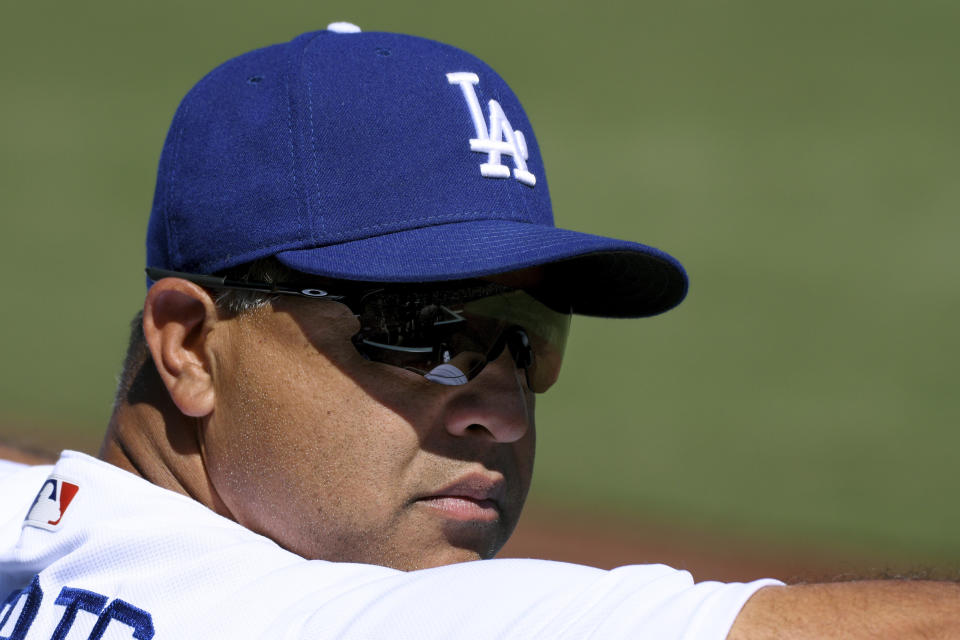With a new diversity fellowship, MLB wants its present to better emulate its past

Every April 15, when Major League Baseball celebrates Jackie Robinson Day, it inadvertently highlights the stark contrast between the game’s rich history and a divergent present. For a sport that helped change society through inclusion, baseball today suffers from a sameness that permeates managerial seats, ownership boxes and front-office positions. When Adam Jones, Bruce Maxwell and others call baseball a white man’s sport, they don’t just mean on the field. It’s especially evident with those who run the game.
Baseball doesn’t need diversity for the sake of diversity. What it needs is to erase the perception – a well-earned one – that it’s an unwelcome place to an enormous segment of the population. And it’s from that place that Renee Tirado, the league’s vice president of talent and head of diversity, set out six months ago to overhaul the sport’s culture.
This week, the league will begin taking applications for the MLB Diversity Fellowship Program, an initiative that will provide people of color and women 18- to 24-month jobs in 20 front offices across the game. Combined with three more spots in a three-year program with the commissioner’s office, it is MLB’s strongest foray yet into widening its talent base by recruiting those who don’t typically consider baseball a viable career path.
“It’s not necessarily that baseball needs someone who’s black or a woman,” Tirado said. “Baseball needs the absolute best talent possible to stay competitive and become a global entertainment and sports option. You can only do that if you’re fishing in the biggest pool possible. At the end of the day, whether people want to admit it or not, we’re becoming more global. The United States is becoming more diverse. And audiences want to see themselves reflected in the sports and brands they’re investing in.
“If we want baseball to continue to be America’s pastime and this amazing sport for everyone, we have to be diligent to bringing in the talent that looks like everyone. This is not an affirmative-action agenda. We are not hiring people because of their gender or ethnicity. We are hiring people who are super talented who happen to be those demographics.”
By offering a higher-than-normal starting salary, MLB hopes to compete, Tirado said, with the technology companies and investment banks that often poach the brightest talent off college campuses. The fellowships will be open to those graduating this spring as well as those in graduate-level programs and people who have earned an undergraduate degree within the last two years.
Over the last six months, as she reached out to career-services departments at schools, met with representatives of historically black colleges and universities, and targeted women in STEM programs and with coding skills, Tirado said she was struck by their assessment of the league. Baseball fans existed. The proliferation of white, Ivy League-educated general managers, though, fostered the sense of an old boys’ club populated by younger men.
The fellowship’s purpose, Tirado said, isn’t merely to break that notion.
“The ultimate goal at the end of the day is to have a legitimate pool of women and people of color who are on track to be future leaders of baseball,” she said. “This is where I want to be able to find the next GM, the next head of scouting.”
The jobs will cover a variety of areas. Some teams, Tirado said, are seeking applicants to bolster their analytics departments. Others see the program more like the baseball equivalent of medical school, with fellows rotating among the game’s varied departments: professional scouting, amateur scouting, player development and analytics. The first round of interviews will take place at MLB headquarters after the Nov. 17 application deadline, and teams will highlight their favorite candidates. The league then will match the applicant with a team, which will pay the fellow’s salary and offer full benefits.
The initiative is part of commissioner Rob Manfred’s push to fight against MLB’s reputation and runs in concert with youth programs targeted at African-Americans, whose population in baseball has winnowed after years of negligence. Socioeconomic factors have made inner-city baseball something of an anachronism, and baseball’s efforts there, though nascent, have yet to make a tangible dent.
MLB sees the fellowship program through a similar lens. Expecting change within the next half-decade is unrealistic. Perhaps a decade from now, Tirado said, baseball front offices will better represent America than they do currently, with three non-white GMs: the Marlins’ Michael Hill, the Dodgers’ Farhan Zaidi and the Tigers’ Al Avila. Only three managers – the Dodgers’ Dave Roberts, the Nationals’ Dusty Baker and the White Sox’s Rick Renteria – are people of color.
“I have a lot of confidence and believe in the clubs and their commitments as well as the senior leadership,” she said. “It is a long play. It’s a marathon. It took us a while to get to this position, so it’ll take it a time to turn it around.”
MLB finds itself in a unique position to appeal to a wide swath of the public, with the NFL not just being pilloried by the president but the existential threat of head trauma. And while diversity initiatives can be polarizing, the league’s stance – that it wants to reopen pipelines long closed, not close off current ones for others forsaken – is noble. On Jackie Robinson Day, baseball likes to celebrate itself and its past. Finally, after far too long, the present may be starting to catch up.


